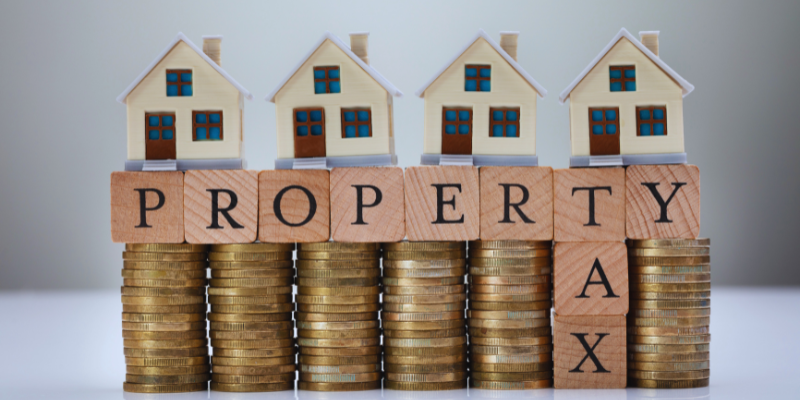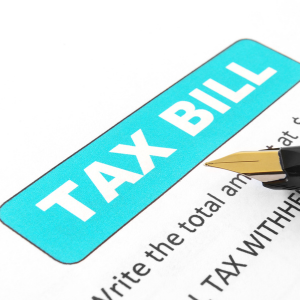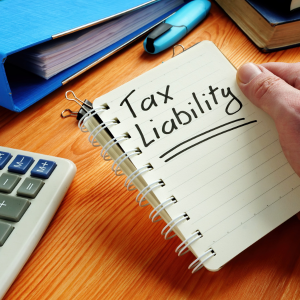
Understanding Property Tax Rates in Plano, Texas
Getting a handle on property tax rates in Plano, Texas, is essential for homeowners and real estate investors who want to make smart financial choices. These rates are set by several local bodies, including the city of Plano, Collin County, and the local school district.
Each group sets its own rate, which is then added up to create the total tax rate applied to your property’s assessed value. The appraisal district updates these values every year, which directly affects how much you’ll owe in taxes annually.
If you want to buy a house or invest in real estate, knowing these rates can help you plan your budget and get the best results. The money that is raised pays for important public services like roads, schools, and first responders in a disaster.
Tax rates can change based on changes in the budget and property values, so it’s important to keep an eye on them to avoid nasty financial shocks. If you know how the system works, you can do a good job with your taxes and get the most out of your Plano home. Property managers can also be a valuable resource—they often stay updated on local tax changes and can help you navigate costs more efficiently.
Key Factors Influencing Plano Property Taxes
A few core elements shape the property tax burden for homeowners and investors in Plano. The biggest factor is the assessed value of the home, which the Collin County Appraisal District determines each year.
Rates may change from one year to the next because city funds and service needs can change. Some homeowners may also be able to get exemptions, such as those for homesteaders, seniors, or veterans, which can lower their total tax bill by lowering the amount of their home’s value that is taxed.
Rates may change from one year to the next because city funds and service needs can change. Some homeowners may also be able to get exemptions, such as those for homesteaders, seniors, or veterans, which can lower their total tax bill by lowering the amount of their home’s value that is taxed.
Getting familiar with all these moving parts is key for making informed financial decisions around property ownership or real estate investing in Plano.
How the Appraisal Process Impacts Property Tax in Plano

A big part of how much Plano property tax you pay is how much your home is worth. The Collin County Appraisal District looks at your home every year to figure out how much it’s worth on the market. This value is used to figure out your taxes.
This value directly affects what you’ll owe. For homeowners and investors, knowing how these appraisals are done matters—because if your property’s value rises, so do your taxes.
A home’s fair market value is based on its location, size, state, and sales of similar homes in the area. That’s why you should check your appraisal very carefully when you get it—mistakes can cause your taxes to go up.
You can protest the decision if you think your property has been overpriced. This could lower your tax bill. When you know how this works, you can better plan your yearly budget and stay on top of tax changes.
Comparing Plano’s Property Tax Rate to Other Texas Cities
When looking at tax rates around Texas, Plano stands out as an interesting comparison point for real estate decisions. Located in the Dallas-Fort Worth area, Plano’s property tax rate holds up well against nearby cities like Frisco, McKinney, and Allen.
While it may be a bit higher than what you’d find in smaller towns, it’s still more reasonable compared to big cities like Houston or Austin. This balance makes Plano appealing for both homeowners and real estate investors.
The city also makes good use of its tax money, which means that public services are strong and infrastructure is well taken care of, both of which increase property values. These taxes are even more important as Collin County grows because they help pay for schools and other benefits in the area.
Buyers and investors can make better, more strategic decisions if they know how Plano stacks up against other places.
Recent Changes and Trends in Plano’s Property Tax Rates
Over the past few years, Plano’s property tax rates have seen some changes that affect homeowners and investors alike. These adjustments usually come from shifts in city budgets and the demand for services as the population grows.
As the local real estate market continues to boom, rising property values have made these changes more noticeable. Economic trends and property reassessments have played a big role in how taxes are calculated.
Laws at the state level have also pushed for changes to local tax policies, hoping to find a middle ground between collecting more taxes and helping taxpayers. Rates went up or stayed the same some years because home values went up, and they had to go up in other years to meet the needs of the city.
For investor home buyers in Plano, staying informed about market trends is essential to making smart, profitable decisions in real estate.
Effective Strategies for Reducing Your Property Tax Bill in Plano

There are a few useful things you can do to lower your Plano property tax bill. First, look over your home’s estimated value to make sure it’s a good reflection of the market.
If there is a big difference between your appraisal notice and recent sales of similar homes, you may be able to file a protest. That could cause a review, which could mean lower taxes.
Also, take full advantage of exemptions like the homestead, senior, or veteran exemptions—they can significantly cut your taxable value. Working with a local tax consultant who knows the Plano market can also uncover ways to save.
Lastly, keep track of any repairs or changes you make. This information can help you if you ever need to appeal your valuation. Doing your taxes right means understanding your rights and keeping up with assessments.
The Role of Local Government in Setting Plano’s Property Taxes
Plano’s property tax rates are set every year in large part by the city government. The City Council decides how much money is needed to pay for things like schools, building projects, and responding to emergencies.
To set a tax rate that is both effective and fair, they look at the city’s financial goals along with the most recent property values. The city works with other financial bodies, like school districts and special service areas, to make sure the system is fair.
Together, they have an effect on how individuals’ tax burdens are distributed. That’s why investors and renters should know what the city is doing, especially when it comes to the budget.
Being aware of these processes helps you plan ahead and adjust your financial or investment strategies as needed.
How School Districts Affect Property Taxes in Plano, Tx
In Plano, school districts are one of the biggest influences on your property tax rate. A large portion of what you pay goes directly to public schools, especially the Plano Independent School District (PISD), which is known for its high standards.
Good schools make neighborhoods more attractive, which in turn boosts property values. That’s great for resale, but it also means you’ll likely see higher assessed values, and therefore, higher taxes.
High-performing schools in areas like Plano draw in families, increasing demand and pushing both home prices and property taxes higher. Whether you’re a homeowner or considering an investment, understanding the impact of school funding can help you make better choices — and if you’re ready to sell, we buy houses for cash in Texas.
How Rising Home Values Impact Property Taxes in Plano
In Plano, as in many other places that are growing, your property tax bill may go up if the value of your home goes up. The Collin County Appraisal District takes into account the fact that homes sell for more money when the real estate market is strong.
Tax rates might not change, but if your home’s value goes up, you’ll probably have to pay more. This is very important for people who have lived in their home for a long time and may see its value rise sharply over time, even if they haven’t made any big improvements.
While increased property values are generally seen as a positive investment indicator, they can also make budgeting more challenging if taxes rise faster than expected. That’s why keeping tabs on the local market and challenging overvaluations when necessary is a smart move.
Understanding this connection between property values and taxes helps homeowners and investors in Plano stay financially prepared.
Why Property Taxes Matter for Real Estate Investment in Plano

Property taxes play a major role in shaping real estate investment decisions in Plano. For investors, these taxes directly impact cash flow, return on investment, and long-term profitability. High property taxes can cut into rental income, while favorable rates may enhance overall gains.
The growing economy and high demand for homes in Plano make it a good market to invest in, but investors need to think about the taxes they will have to pay when they look at possible deals. It can also be hard to know what to do when estimated values and local tax policies change often.
Strategic investors often factor in exemptions, appeal opportunities, and neighborhood trends to minimize their tax liability while maximizing returns. Understanding how property taxes affect operating costs is essential for building a sustainable investment strategy.
In rapidly growing cities like Plano, strategic tax planning can turn a good real estate investment into a great one. House Buying Girls buys houses in any condition — contact us today to learn more!
How Do Homestead Exemptions Work in Plano?
Homes in Plano can lower their property taxes with the help of homestead deductions. This exemption may apply to you if you own and live in your main home. It drops the taxable value of your home, not its market value, which means you pay less in taxes.
The exemption is available through the Collin County Appraisal District and applies to city, county, and school district taxes. For example, the Plano ISD and the City of Plano both offer standard homestead exemptions that can result in meaningful savings over time.
To claim the exemption, homeowners must file an application and ensure their driver’s license or ID matches the address of the property. It’s also important to be aware of additional exemptions available for seniors, disabled individuals, and veterans.
Understanding and applying for a homestead exemption is a smart move that helps Plano residents take full advantage of the tax relief they’re entitled to.
What Is the Property Tax Rate in Prosper 2025?
In 2025, the property tax rate in Prosper remains a vital piece of the puzzle for anyone buying or investing near Plano. As this town continues to grow quickly, the tax rate is structured to fund public services while remaining attractive to new residents and investors.
For homeowners, these taxes help cover schools, roads, and local services. Investors need to factor the tax rate into their calculations, as it can influence rental income and property appreciation.
The Prosper tax rate, like others in the region, can change yearly depending on budget needs and the local economy. That’s why it’s important to monitor updates to ensure your financial planning stays on track when dealing with real estate in this expanding area.
What Are the Most Tax-Friendly Neighborhoods in Plano?
When choosing where to buy a home or invest in real estate, many buyers in Plano consider not just property values but also property tax impact. Some neighborhoods offer a more favorable tax situation due to lower appraised values, generous exemptions, or being located within less costly taxing districts.
For example, areas farther from commercial hubs or major school zones may see more modest valuations, leading to a lighter tax burden. On the other hand, popular neighborhoods with high-performing schools and newer amenities often come with higher tax assessments.
It’s important for buyers to research the total tax rate for a specific area, including contributions from the city, county, and school district. Working with a knowledgeable local agent or reviewing appraisal data from the Collin County Appraisal District can help you pinpoint neighborhoods that strike the right balance between lifestyle, value, and tax savings.
Being aware of how location influences property taxes can lead to smarter long-term decisions in Plano’s competitive real estate market.
At What Age Do Seniors Stop Paying Property Taxes in Texas?
While seniors in Texas don’t completely stop paying property taxes, they do get access to valuable exemptions once they turn 65. The Over-65 Exemption, for example, freezes the school tax portion of their property taxes, even if their home value increases.
This freeze applies as long as they own and live in the home. On top of that, some cities and counties offer additional exemptions or freezes that can further ease the tax burden for seniors.
Understanding and applying for these benefits is key for older homeowners in Plano who want to lower expenses. It’s a smart move that helps retirees stay financially comfortable while enjoying the benefits of life in this thriving North Texas community.
Helpful Plano Blog Articles
- Plano, TX Neighborhood Map
- Best Time to Sell a House in Plano, TX
- Best Things to Do in Plano, TX With Kids
- Guide To Plano, TX Property Tax Rates For Homeowners And Investors
- Top-rated Property Managers For Homes And Real Estate In Plano, TX
- Expert Tips To Prevent Home Foreclosure In Plano, TX: A Comprehensive Guide
- Discover The Charm Of Plano, Texas: Fascinating Insights Into Its Real Estate
- Expert Tips For Selling Your Home By Owner in Plano, TX
- Expert Guide To Selling Your Inherited House In Plano, Texas

| TAX POLICIES | TAX PAYMENT | EFFECTIVE TAX RATE | HOME APPRAISAL | INBOX | |
| EMAIL MESSAGE | AVERAGE | CALCULATOR | HOMEOWNERSHIP | MORTGAGE | DALLAS COUNTY |
| U.S. | SUBURBAN AREAS | SUBURBS | PLANO ISD | HARRIS COUNTY | PAYMENT |
| MEXICAN | MEXICO | CITIES OF FORT WORTH |
